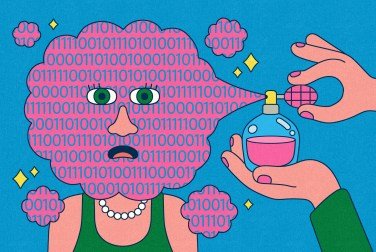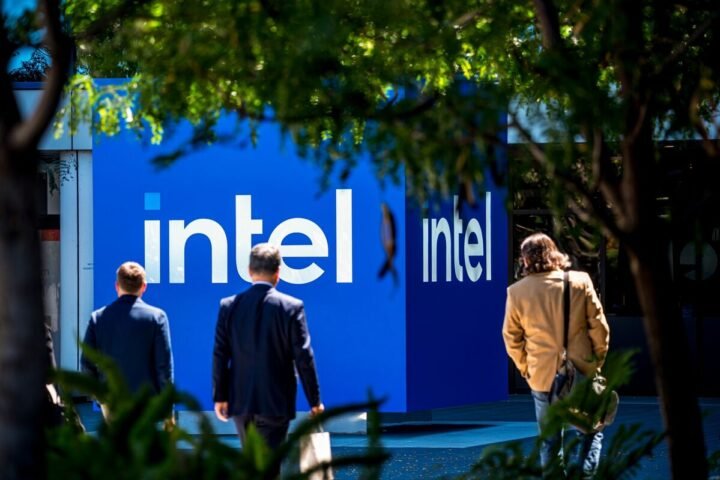AI is rapidly transforming the fragrance creation process, raising debates over innovation versus the potential loss of traditional artistry. The Manhattan-based startup Osmo claims to revolutionize this sector by implementing artificial olfactory intelligence that allows for custom fragrance samples within 48 hours from initial client prompts. This rapid turnaround starkly contrasts the traditional approach, where perfumers typically require months to finalize scents, involving extensive trials and adjustments.
Fragrance development has historically been a laborious process, where a perfumer’s work can take anywhere from six months to several years from concept to market. In contrast, Osmo aims to streamline this by employing advanced technology to convert raw materials like summer plums into fragrance compounds quickly. This innovation invites questions about the authenticity and emotional depth of AI-generated scents compared to those meticulously crafted by human perfumers.
Notably, major fragrance companies such as DSM-Firmenich, Givaudan, IFF, and Symrise are already using AI technologies to enhance scent formulation and product development. Givaudan’s Carto system, for instance, assists in refining scent compositions, while DSM-Firmenich’s EmotiON claims to create fragrances that promote well-being. The integration of AI is becoming commonplace in the industry, influencing a vast array of products from perfumes to commercial household goods.
As a younger generation of perfumers begins to rely heavily on AI tools, there is concern over the dilution of traditional skills and methods. Some professionals express that the push towards efficiency and volume in fragrance production might overshadow the craftsmanship and personal touch that characterize artisanal perfumery. Critics argue that while AI could democratize access to fragrance creation, it risks erasing the nuanced understanding that comes from human experience.
Michael Nordstrand, a perfumer, questions the implications of AI in the industry, highlighting that companies might bypass skilled professionals in favor of AI-generated solutions that may not always disclose their foundational datasets or methodologies. Osmo’s refusal to share specifics regarding their fragrance development process and the lack of transparency raises further concerns about the ethical ramifications of relying on AI in creative fields.
The fragrance market has witnessed unprecedented growth, launching over 3,000 new scents in 2023 alone, up from approximately 400 in 1995. Osmo’s founder, Alex Wiltschko, envisions an exponential increase in new fragrance options, aiming for the creation of millions of unique scents. However, this surge brings environmental considerations into the spotlight, as the industry grapples with the sustainability of AI technologies paired with traditional fragrance materials, which require extensive resources and time to produce.
Despite claims of lower energy consumption for Osmo’s systems compared to larger AI models, the company does not track its energy usage, leaving doubts about its ecological footprint largely unaddressed. As consumer awareness grows, there remain significant gaps in understanding how advanced technologies are integrated into everyday products — especially concerning their environmental costs.
Furthermore, practices within indie brands raise ethical concerns. For example, some companies have employed AI-generated videos featuring deepfakes of real perfumers, undermining trust and transparency in the industry. Cases of unauthorized usage of perfumers’ likenesses in advertising without consent illustrate the potential for exploitation as AI technologies become more common.
The traditional aspects of perfumery, such as the meticulous cultivation of natural materials, are at risk due to the expedited nature of AI-assisted fragrance development. As retailers like Stéle highlight the pitfalls of a purely automated approach, the industry faces pivotal questions: How can it maintain integrity and craftsmanship in the face of rapid technological advancement? If marketers prioritize speed and efficiency, will they succeed in disconnecting consumers from the organic beauty that fragrances traditionally represent?
As this dynamic landscape evolves, industry professionals like Nordstrand warn that without a thoughtful discussion about the role of AI in perfumery, the art form may face unanticipated consequences akin to the cautionary tales portrayed in popular culture.
In conclusion, as AI becomes increasingly woven into the fabric of fragrance creation, the industry must navigate challenges of authenticity, artistry, and ethical standards while embracing new technologies, ensuring the balance between innovation and tradition persists.










